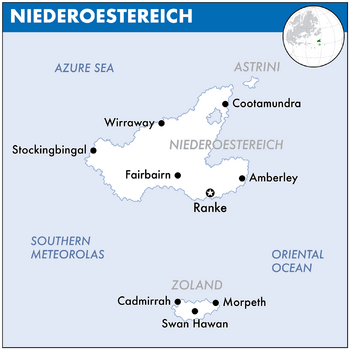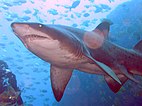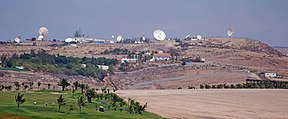Niederoestereich
National Comrades of Niederoestereich Niederoestereich (Alemannic) Astrini (Oharic) | |
|---|---|
Motto: Communitas, Identitas, Stabilitas (Community, Identity, Stability) | |
 Map of Niederoestereich | |
| Capital | Ranke |
| Demonym(s) | Niederoestereichian |
| Government | Unitary council republic |
| John Monash | |
• Premier | Maputi White |
| Legislature | House of Representatives Senate |
| Population | |
• 2020 census | 14,906,117 |
| Currency | Reichsmark (NRM) |
| Antipodes | Yeosan |
The National Comrades of Niederoestereich, commonly known as Niederoestereich and sometimes also called the State of Niederoestereich, is a sovereign country in the southeast of Europa on Eurth. Nearest neighbouring countries include: Orioni to the north, Sunset Sea Islands to the east, and Bainbridge Islands to the west. The country has an estimated population of around 14,9 million; it's capital city is Ranke. Since 1901, Niederoestereich has been an independent republic led by a Chancellor. It trades extensively with its neighbours, and is a founding member of the Entente of Oriental States.
Etymology
Niederoestereich is the Old Buranic name for this island. The country derives its name from its geographic position to the south-east of Burania, namely "nieder" (southern) and "oesten (eastern). This name is first mentioned during the early 1200s when the first Buran sailors arrived on the island's tropical shores. In Oharic the country is known as Astrini.
Geography
Niedoestereich is situated in southeast edge Europa. It is at the eastern end of the Meteorolan islands chain, at the edge of the enormous Oriental Ocean. Neighbouring countries include Orioni to the north, Burkini and Sunset Sea Islands to the east, and Bainbridge Islands to the west. Niederoestereich has a tropical oceanic climate which is hot and humid but moderated by trade winds. Its climate is characterised by ample sunshine, warm temperatures, light breezes and showers.
The capital city is Ranke. Another important city is Wirraway because of its major trading port and shipyards. Niederoestereich is divided into four states which each have different geographical structures.
History
- 100s: Earliest confirmed archeological signs that the island was inhabited by Meteorolan settlers sometime during the 2nd century CE.
- 400s: The island became a part of the Pearl Road, known for rare and precious gemstones.
- 1200s: The island was awarded to Buranian mercenaries for their support during the Orinese Civil War. The following centuries it was ruled as an indepedent kingdom by several dynastic houses. The island was mainly used as a penal colony and strategic vantage point for the mother country. Niederoestereich past has been quiet for the most part.
- 1754: When the last ruling dynasty went extinct, the Niederoestereich reverted to Orinese control and became an outpost of its colonial empire.
- 1801: There was a quick sectarian uprising against the Orinese rulership but this was quickly dispersed.
- 1865: The radical socialist group Slazyu attempted to seize control of the Royal Palace in Ranke. Loyalists liberated the ruler and his immediate family, restored order, and exiled key members of Slazyu.
- 1890s: The turn of the century saw increased nationalist uprisings.
- 1901: Niederoestereich declared its independence from its former motherland and was been established as a sovereign country. Industry was being established with agriculture exports as the main source of revenue.
- 1920s: Former Buran elites passed a "White Niederoestereich Policy" to keep their culture intact for fear of foreigners destroying what they have just claimed.
- 1940s: Influeded by foreign political events, Niederoestereich became a democracy with right-wing leanings.[1]
- 2005: A quick revolution took place in Niederoestereich led by the Army, workers and middle class. A new Imperial system was imposed with ideals taken from nationalist and communist principles. The country changed its name to "National Comrades of Niederoestereich".[1]
Politics
Government
The head of state is Chancellor John Monash, who has a fiery temper who is advocating for conscription during the start of the war, although unsuccessful after a referendum.[1] The head of government is premier Maputi White. Niederoestereichs is a unitary council republic. The legislative branch consists of the House of Representatives and the Senate.
- Head of State: Chancellor John Monash
- Head of Government: Premier Maputi White
- Minister for Transport and Regional Services: Hon. H. Murray
- Treasurer: Hon. C. Anderson
- Minister for Trade: Hon A. Blackburn
- Minister for Foreign Affairs Hon. J. Partridge
- Minister for Defence: Hon. H. Throssell
- Minister for Finance and Administration: Hon. J. Maxwell
- Minister for Health and Ageing: Hon. R. Simpson
- Attorney-General: Hon. R. Keliher
- Minister for the Environment and Heritage: Hon. C. Jeffries
- Minister for Communications, Information Technology and the Arts: Hon. A. Hall
- Minister for Agriculture, Fisheries and Forestry: Hon. J. Woods
- Minister for Immigration and Multicultural Affairs: Hon. J. Dywer
- Minister for Education, Science and Training: Hon. W. Dunstan
- Minister for Family and Community Services: Hon. C. Pope
- Minister for Industry, Tourism and Resources: Hon. A. Gurney
- Minister for Employment and Workplace Relations: Hon. R. Grieve
- General of Combined Forces: General J. Hennessy
- Head of Niederoestereichian Secret Intelligence Organisation(NSIO): Major. D. Zhukov
Military
The Niederoestereichian Defence Force (NDF) is responsible for the defence of Niederoestereich. Most of the military budget is directed towards the army, then navy, air force and finally space projects. Niederoestereichs main attribute is its army, although only made up of volunteers with a small professional army. Her army infantry is mainly used as shock troops, which enjoys good morale in most situations. There are armoured cavalry regiments, although none professional they still rival if not better their counterparts. Its naval is relatively small, since before 1900; its former motherland had taken care of defence. Niederoestereichian navy is mainly late 20th century frigates, destroyers, minelayers and corvettes, no dreadnoughts or heavy cruisers. Niederoestereich has a limited air force. In 2005, Niederoestereich launched it first space vehicle.[1]
The command structure of the NDF is quite simple: the Head of State is supreme commander and decides were the forces are deployed, while the General of the Combined Forces is promoted from one of the three leaders of each repective defence branch. These positions are held by respectively Chancellor John Monash and General J. Hennessy from the Niederoestereichian Army. Although the Niederoestereichian military may not contain the latest and greatest technology, the training programmes and officer training greatly enhance available resources. Pure; basic soldiering is taught without having to rely on technology. In war zones, all ranks attend briefings, including cooks, as so if the officers are taken out, the force can carry on sufficiently
Foreign relations
Niederoestereich is a member of the Entente of Oriental States and the Group of Island Nations. It maintains good diplomatic relations with Orioni, its former coloniser.
Economy
(WIP. Energy. Transport. Media.)
The citizens are hard working labourers who enjoy a higher basic wage than most of their counterparts in other countries. They have an easy going and light-hearted attitude even in war. Niederoestereich maintains its own currency, the Niederoestereichian Reichsmark (NRM). The port city of Wirraway is the leading commercial and industrial city of Niederoestereich.
Demographics
(WIP. Ethnic groups. Religion. Health. Education.)
Niederoestereichians historically have viewed themselves as an egalitarian society, with a distrust of the rich and powerful, this belief continues in the form of the tall poppy syndrome.
Language
The language combines a mocking disrespect for established authority, particularly if it is pompous or out of touch with reality, with a distinctive upside-down sense of humour. For instance, Niederoestereichians take delight in dubbing a tall man "Shorty", a silent one "Rowdy" a bald man "Curly", and a redhead, of course, is "Blue". Politicians, or "pollies", be they at state or federal level, are universally disliked and distrusted.
Culture
The Niederoestereichian culture has historically been a masculine one, forged on the hardship of early settlers, and later on the heroism of the Niederoestereichian soldiers in past conflicts. "Mateship", or loyal fraternity, has reigned supreme. This also explains why the more aggressive forms of sport enjoyed by all. Niederoestereichians's are passionate about sports, and it forms a major part of the country's culture. Cricket is the most popular sport.
Niederoestereichians have traditionally had a very strong "underdog" attitude, that is they will support those who appear to have the lesser hand, so long as Niederoestereich is not involved. This is evident in Niederoestereichs involvement in the Second Tamurin War, supporting the cause of the Imperials. The country shares distant cultural ties with Tamurin, a country which was similarly dominated by a Buranian elite for several centuries.
Niederoestereichians, are relaxed, tolerant, easy-going and yet cling dearly to the fundamental importance of common-sense justice, or to use the classic expression, a "fair go". It is the land of the long weekend: a country that declares a universal holiday for a horse race, that pioneered the eight-hour working day, that takes pride in never working too hard and yet idolises the "little battler" who sweats away for a small reward. Niederoestereichianss respect "hard yakka"; to be "flat out like a lizard drinking" is to be extremely busy, or sometimes the exact opposite. Niederoestereichians are said to make great sportsmen and superb soldiers.
References
- ↑ 1.0 1.1 1.2 1.3 The National Comrades of Niederoestereich (europans.com)












